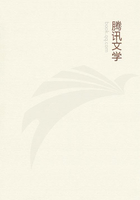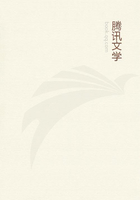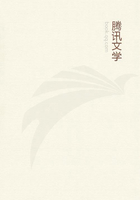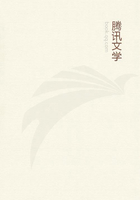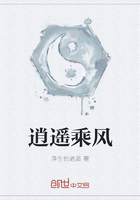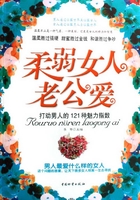"Before I knew the poets," he said towards the end of his life, "I was a man lacking in one of the senses. I could see plainly that this sense was necessary, since there were so many things calling for its operation. In my solitary walks at night I used to feel a strange uneasiness; I used to wonder why I could not sleep; why I should find such pleasure in gazing upon the stars that I could not tear myself from their presence; why my heart should suddenly beat with joy on seeing certain colours, or grow sad even to tears on hearing certain sounds. At times I was so alarmed on comparing my continual agitation with the indifference of other men of my class that I even began to imagine that I was mad. But I soon consoled myself with the reflection that such madness was sweet, and I would rather have ceased to exist than be cured of it. Now that I know these things have been thought beautiful in all times and by all intelligent beings, I understand what they are, and how they are useful to man. I find joy in the thought that there is not a flower, not a colour, not a breath of air, which has not absorbed the minds and stirred the hearts of other men till it has received a name sacred among all peoples. Since I have learnt that it is allowed to man, without degrading his reason, to people the universe and interpret it by his dreams, I live wholly in the contemplation of the universe; and when the sight of the misery and crime in the world bruises my heart and shakes my reason, I fall back upon my dreams. I say to myself that, since all men are united in their love of the works of God, some day they will also be united in their love of one another. I imagine that education grows more and more perfect from father to son. It may be that I am the first untutored man who has divined truths of which no glimpse was given him from without. It may be, too, that many others before myself have been perplexed by the workings of their hearts and brains and have died without ever finding an answer to the riddle. "Ah, we poor folk,"added Patience, "we are never forbidden excess in labour, or in wine, or in any of the debauches which may destroy our minds. There are some people who pay dearly for the work of our arms, so that the poor, in their eagerness to satisfy the wants of their families, may work beyond their strength. There are taverns and other places more dangerous still, from which, so it is said, the government draws a good profit; and there are priests, too, who get up in their pulpits to tell us what we owe to the lord of our village, but never what the lord owes to us. Nowhere is there a school where they teach us our real rights; where they show us how to distinguish our true and decent wants from the shameful and fatal ones; where, in short, they tell us what we can and ought to think about when we have borne the burden and heat of the day for the profit of others, and are sitting in the evening at the door of our huts, gazing on the red stars as they come out on the horizon."Thus would Patience reason; and, believe me, in translating his words into our conventional language, I am robbing them of all their grace, all their fire, and all their vigour. But who could repeat the exact words of Patience? His was a language used by none but himself; it was a mixture of the limited, though forcible, vocabulary of the peasants and of the boldest metaphors of the poets, whose poetic turns he would often make bolder still. To this mixed idiom his sympathetic mind gave order and logic. An incredible wealth of thought made up for the brevity of the phrases that clothed it. You should have seen how desperately his will and convictions strove to overcome the impotence of his language; any other than he would have failed to come out of the struggle with honour. And I assure you that any one capable of something more serious than laughing at his solecisms and audacities of phrase, would have found in this man material for the most important studies on the development of the human mind, and an incentive to the most tender admiration for primitive moral beauty.
When, subsequently, I came to understand Patience thoroughly, I found a bond of sympathy with him in my own exceptional destiny. Like him, Ihad been without education; like him, I had sought outside myself for an explanation of my being--just as one seeks the answer to a riddle.
Thanks to the accidents of my birth and fortune, I had arrived at complete development, while Patience, to the hour of his death, remained groping in the darkness of an ignorance from which he neither would nor could emerge. To me, however, this was only an additional reason for recognising the superiority of that powerful nature which held its course more boldly by the feeble light of instinct, than Imyself by all the brilliant lights of knowledge; and which, moreover, had not had a single evil inclination to subdue, while I had had all that a man may have.
At the time, however, at which I must take up my story, Patience was still, in my eyes, merely a grotesque character, an object of amusement for Edmee, and of kindly compassion for the Abbe Aubert.
When they spoke to me about him in a serious tone, I no longer understood them, and I imagined they took this subject as a sort of text whereon to build a parable proving to me the advantages of education, the necessity of devoting myself to study early in life, and the futility of regrets in after years.
Yet this did not prevent me from prowling about the copses about his new abode, for I had seen Edmee crossing the park in that direction, and I hoped that if I took her by surprise as she was returning, Ishould get a conversation with her. But she was always accompanied by the abbe, and sometimes even by her father, and if she remained alone with the old peasant, he would escort her to the chateau afterwards.

